Search
Remove Ads
Advertisement
Summary 
Loading AI-generated summary based on World History Encyclopedia articles ...
Search Results

Definition
Tang Dynasty
The Tang Dynasty (618-907 CE) was one of the greatest in Imperial Chinese history. It was a golden age of reform and cultural advancement which lay the foundation for policies which are still observed in China today. The second emperor, Taizong...

Definition
Shang Dynasty
The Shang Dynasty (c. 1600-1046 BCE) was the second dynasty of China, which succeeded the Xia Dynasty (c. 2070-1600 BCE) after the overthrow of the Xia tyrant Jie by the Shang leader, Tang. Since many historians question whether the Xia Dynasty...

Definition
Han Dynasty
The Han Dynasty (202 BCE - 220 CE) was the second dynasty of Imperial China (the era of centralized, dynastic government, 221 BCE - 1912 CE) which established the paradigm for all succeeding dynasties up through 1912 CE. It succeeded the...
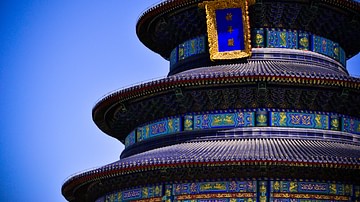
Definition
Ming Dynasty
The imperial Ming dynasty ruled China from 1368 to 1644. It replaced the Mongol Yuan dynasty which had been in power since the 13th century. Despite challenges from abroad and within, the Ming dynasty oversaw an unprecedented growth in China's...

Definition
Qin Dynasty
The Qin Dynasty (221-206 BCE) was the first dynasty of Imperial China (defined as the era of centralized, dynastic government in China between 221 BCE and 1912 CE) which united the separate states following the Warring States Period (c. 481-221...
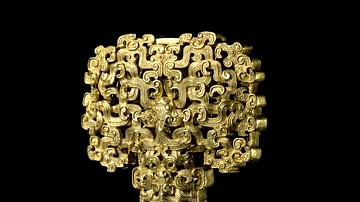
Definition
Zhou Dynasty
The Zhou Dynasty (1046-256 BCE) was among the most culturally significant of the early Chinese dynasties and the longest lasting of any in China's history, divided into two periods: Western Zhou (1046-771 BCE) and Eastern Zhou (771-256 BCE...
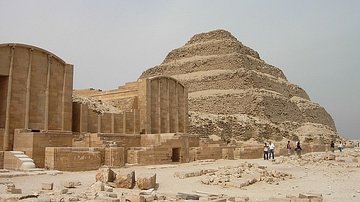
Definition
Third Dynasty of Egypt
The Third Dynasty of Egypt (c. 2670-2613 BCE) begins with king Djoser, famous for his Step Pyramid at Saqqara. Although there are some sources which claim a king named Sanakht (also known as Nebra) founded the Third Dynasty, these claims...
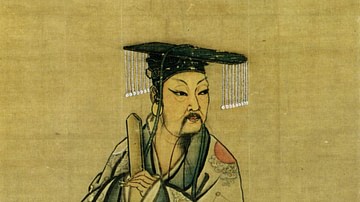
Definition
Xia Dynasty
The Xia Dynasty (c. 2070-1600 BCE) was the first government to emerge in ancient China and the first to adopt the policy of dynastic succession. Consequently, the Xia was the first dynasty of China. Long regarded as a mythical construct of...
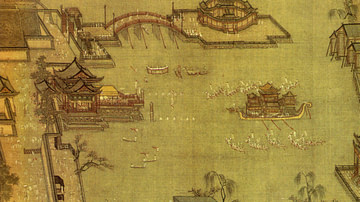
Definition
Song Dynasty
The Song (aka Sung) dynasty ruled China from 960 to 1279 CE with the reign split into two periods: the Northern Song (960-1125 CE) and Southern Song (1125-1279 CE). The Northern Song ruled a largely united China from their capital at Kaifeng...
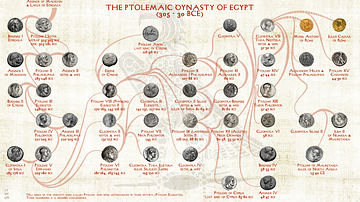
Definition
Ptolemaic Dynasty
The Ptolemaic dynasty was a Macedonian royal family that ruled Ptolemaic Egypt from 323 to 30 BCE. It was founded by Ptolemy I, a general and successor of Alexander the Great. They built Alexandria, including the Lighthouse of Alexandria...